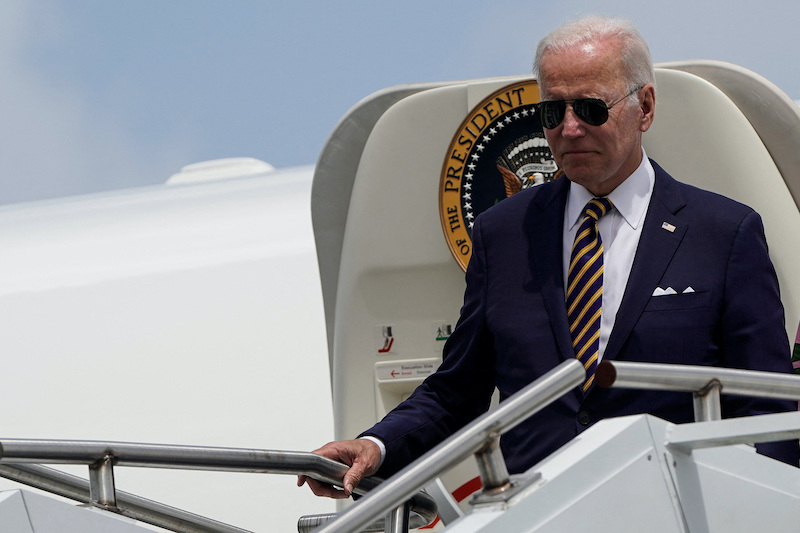China’s harsh response to Nancy Pelosi’s visit to Taiwan has complicated the Biden Administration’s decision on whether to lift or expand tariffs on Chinese goods.
President Joe Biden’s team is conflicted, officials have said, and keen to take a strong stance against China’s actions, while also recognising the need to lift trade barriers and control inflation.
It has considered a combination of eliminating some tariffs, launching a new “Section 301” investigation into potential areas for additional tariffs, and expanding a list of tariff exclusions to aid US companies that can only get certain supplies from China.
Biden has not made a decision on the issue and all options remain on the table, the White House said.
Taiwan Complicates Tariffs
China’s military responded to US House Speaker Nancy Pelosi’s visit by launching ballistic missiles and simulating attacks on the self-ruled island of Taiwan that China claims as its own.
This triggered a recalculation by US officials, who are eager not to do anything that could be viewed by China as an escalation while also seeking to avoid being seen as retreating in the face of the communist country’s aggression.
“I think Taiwan has changed everything,” said one source familiar with the latest developments in the process, details of which have not been previously reported.
“The (Pelosi) visit has undermined the political foundation of the China–US relations and will inevitably cause major disruption to the exchanges and cooperation between the two sides,” China’s Washington Embassy spokesperson Liu Pengyu said in an email.
Trump’s Tariffs Weigh Heavy on US
The Trump administration placed tariffs on imports from China which have added significant cost to some goods for US citizens, as top officials such as Treasury Secretary Janet Yellen have noted.
This includes tariff exclusions for more than 2,200 import categories, including many critical industrial components and chemicals, but those expired as Biden took office in January 2021.
US Trade Representative Katherine Tai has reinstated only 352 of them. Industry groups and more than 140 US lawmakers have urged her to vastly increase the numbers.
A final trade deal, reached at the end of 2019 with the Trump administration, required China to increase its purchases of US farm and manufactured goods, energy and services by $200 billion in 2020 and 2021 over 2017 levels. But China fell well short of these commitments, which included a $77.7 billion two-year increase in imports of US manufactured goods, including aircraft, machinery, vehicles and pharmaceuticals.
The Peterson Institute for International Economics estimates that China effectively bought none of the extra goods it promised. Beijing blamed the Covid-19 pandemic, which began just as the deal was signed in January 2020.
US industries from consumer electronics and retailers to automotive and aerospace have been clamouring for Biden to eliminate the duties of up to 25% as they struggle with rising costs and tight supplies.
The US Trade Representative’s office is now in the midst of a statutory four-year review of the tariffs imposed by Trump, which could take a few more months to complete. Final public comments on whether to keep them in place are due by August 23.
“The president had not made a decision before events in the Taiwan Strait and has still not made a decision, period. Nothing has been shelved or put on hold, and all options remain on the table,” White House spokesperson Saloni Sharma said. “The only person who will make the decision is the president – and he will do so based on what is in our interests.”
- Reuters, with additional editing from Alfie Habershon
Read more:
Chinese Planes, Ships Simulating Attacks, Taiwan Says
AF TV – Explained: Why Pelosi’s Taiwan Visit is Heightening Fears on TSMC
Apple Tells Taiwan Suppliers To Meet China Label Standards
























